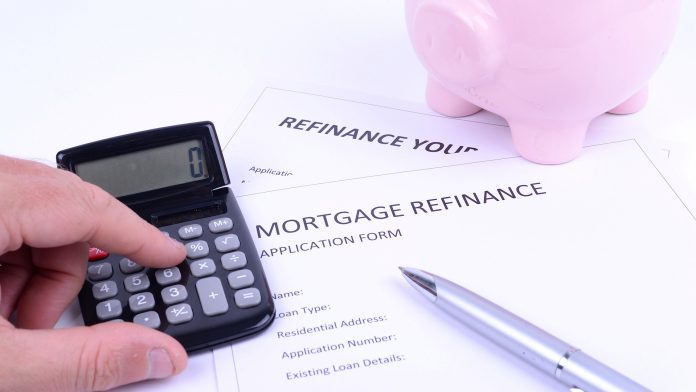Key Highlights
- Mortgage rates now back to recent lows
- Still lots of homeowners who could save by refinancing
- BUT, both loans are harder to get now
Even though demand isn’t hot amid the COVID-19 pandemic, there are still some people who would like to buy a house now that mortgage rates have dropped to recent lows. And, due to those low rates, there are still lots of current owners who could save money by refinancing their existing mortgages.
Download Your FREE Ultimate Agent Survival Guide Now. This is the exact ‘do this now’ info you need. Learn NOW How to Access All The Bailout Program Cash You Deserve. Including Unemployment and Mortgage Forbearance Plans. To Access the Ultimate Agent Survival Guide Now Text The Word SURVIVAL to 47372. 4 Msgs/Month. Reply STOP to cancel, HELP for help. Msg&data rates may apply. Terms & privacy: slkt.io/JWQt
So, why are people who would like to buy a home not doing so and why aren’t homeowners who could save by refinancing their mortgages not doing so? Credit is now much tighter than it was just weeks ago and, as a result, loans are simply much harder to get.
According to the Mortgage Bankers Association (MBA), mortgage credit availability has fallen to its lowest level in five years. Jumbo loans, loans valued above the conforming loan limit of $510,400, are drying up. Lender liquidity in general is drying up due to the economic and employment impacts caused by the coronavirus pandemic. The more borrowers request the CARES Act forbearance program (whereby borrowers can defer up to a year’s worth of mortgage payments that will then have to be paid later), the tighter lender liquidity will be and the tighter mortgage credit availability will be.
Joel Kan, and economist with the MBA, said, “There (has been) a reduction in the availability of loans with lower credit scores and higher LTV ratios…lenders are making credit criteria changes to account for the increased likelihood of forbearance and defaults, as well as higher costs.”
Both Wells Fargo and JPMorgan Chase have changed their underwriting guidelines in the past couple of weeks. Wells, the nation’s largest mortgage lender by volume, has temporarily suspended its purchasing of nonconforming loans and is scaling back its retail originations of nonconforming refinances and conforming high-balance loans. Chase is now requiring new mortgage applicants to have a minimum FICO score of 700 and requiring borrowers to put down a minimum 20% down payment on a house.
Though mortgage servicers (including several nonbank lenders) have pleaded with the Federal Reserve for some kind of liquidity facility to help them make payments to their non-conforming bondholders (required by law regardless of borrowers making mortgage payments) but only Ginny Mae is doing that for FHA loans. The Fed is now buying billions worth of conforming mortgage-back bonds but there simply is much less liquidity for other types of lending.
Additionally, Freddie Mac Ginny Mae and Fannie Mae, together the largest purchases of mortgages today, are all now requiring that borrower income and asset documentation be dated within 60 days of the initial loan application, not the standard 120-day timeframe pre-COVIC-19, to help ensure that borrowers still have incomes and jobs. And for self-employed borrowers, lenders must now verify the existence of the borrowers business within 10 days, rather than the former 120 days.
Just two months ago, mortgage rates sat at record lows and refinance demand was booming. Today, some of the refinance applications that would have been approved will likely be rejected due to stricter qualification requirements and/or timing.
For homebuyers, purchase applications will take longer to lock in and closings will take much longer due to restrictions on appraisals and lenders having to re-verify a borrower’s income and assets.
According to Guy Cecala, CEO of Inside Mortgage Finance, “A conforming mortgage for a home purchase is probably the ‘easiest’ while a jumbo refi is probably the ‘hardest’ to get in the current environment.”
Mark Calabria, director of the Federal Housing Financing Agency, believes that this recent tightening in credit availability is a “normal reaction” to economic situations and uncertainties. He also believes that tightened lending standards will become “semi-permanent” to reflect the realities coming out of this COVID-19 crisis.
Thanks to HousingWire and CNBC.
Also read: Senate Passes Legislation to Provide Additional $484B Funds for COVID Small Business Relief, Will $2.2T CARES Act Sustain Economy or Are Relief Provisions Even Barely Enough?, Podcast: Breaking News, SBA PPP Program | 12 Mortgage Forbearance

























